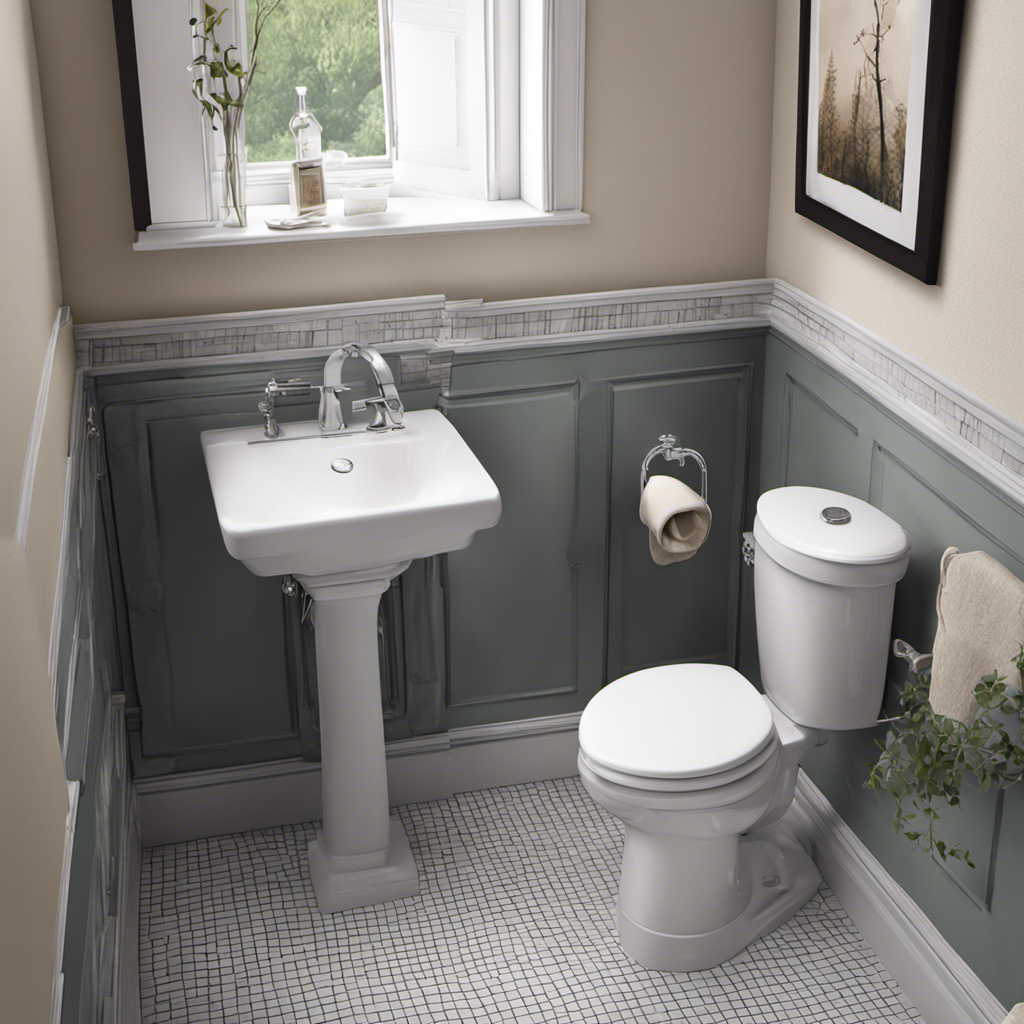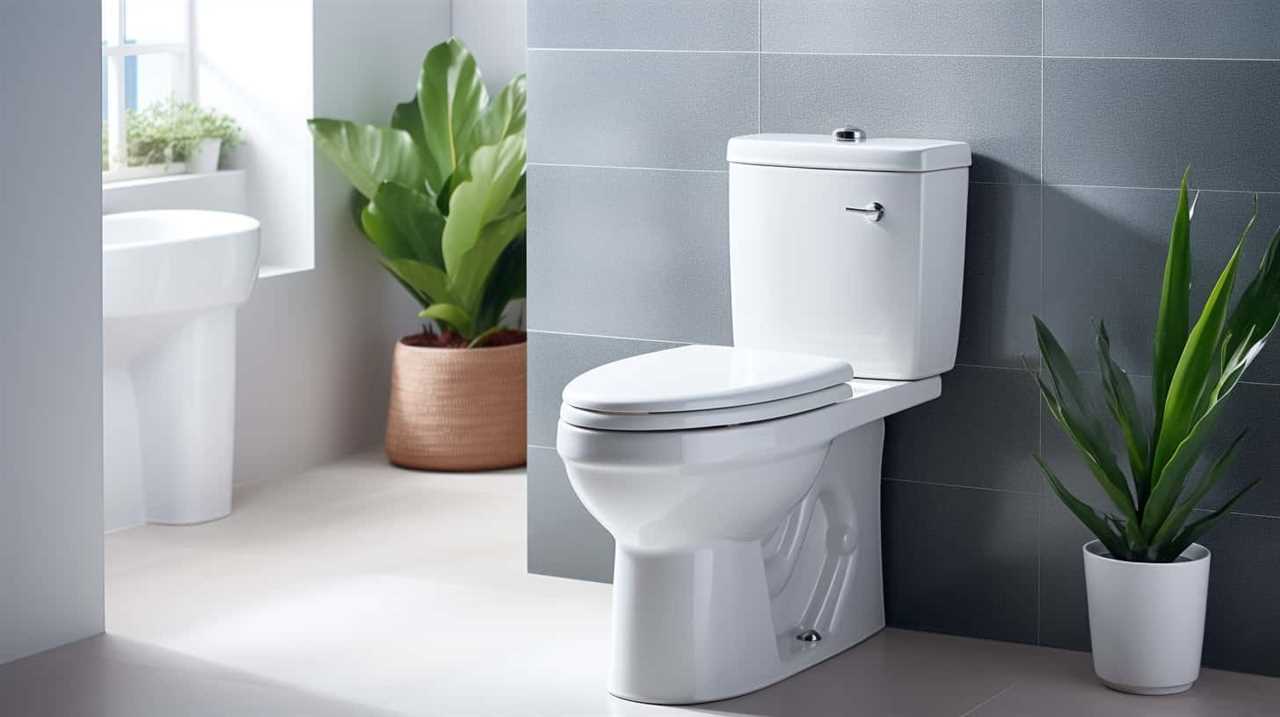Have you ever thought about why flushing toilet paper in Latin America is not allowed? It may seem puzzling, but the reason behind it is the specific plumbing issues that are present in this region.
In our article, we will delve into the environmental impact of flushing toilet paper, the historical and cultural practices that have shaped this norm, as well as alternative methods of disposal.
So, join us as we explore this intriguing topic and provide tips for travelers to adapt to this practice.
Key Takeaways
- Latin America’s outdated and limited plumbing infrastructure is not designed to handle flushing toilet paper, leading to alternative methods of disposal such as using bidets or waste bins.
- Understanding and adhering to these alternative hygiene practices are crucial for maintaining hygiene and avoiding plumbing issues in Latin America.
- Disposing of toilet paper in waste bins helps prevent clogs and damage to the sewage system, reducing maintenance costs and contributing to water conservation efforts.
- Flushing toilet paper in Latin America can have negative environmental impacts, including water pollution and strain on sewage treatment systems, while using alternative methods can reduce these risks.
Plumbing Infrastructure Challenges
Dealing with inadequate plumbing infrastructure poses significant challenges for us when it comes to flushing toilet paper in Latin America. The region’s sewage system, in many cases, isn’t designed to handle the disposal of toilet paper. This is due to various factors, such as outdated infrastructure and limited resources for maintenance and upgrades.

As a result, alternative hygiene practices have developed, such as the use of bidets or separate bins for disposing of toilet paper. These practices aim to prevent clogging and damage to the sewage system. It’s essential for travelers and residents alike to understand and follow these practices to maintain proper hygiene and avoid costly plumbing issues.
Additionally, efforts should be made to improve the plumbing infrastructure in Latin America to accommodate the flushing of toilet paper and ensure better sanitation for the population.
Environmental Impact of Flushing Toilet Paper
While dealing with inadequate plumbing infrastructure poses challenges for us when it comes to flushing toilet paper in Latin America, it’s important to consider the environmental impact of this practice. Flushing toilet paper can contribute to water pollution and strain sewage treatment systems.
Here are three key points to consider:

- Water pollution: Flushing toilet paper introduces additional waste into the water system, which can contaminate water sources and harm aquatic life. The chemicals and microorganisms present in the paper can have detrimental effects on ecosystems if not properly treated.
- Sewage treatment: Flushing toilet paper increases the load on sewage treatment plants, which may not have the capacity to handle large amounts of paper waste. This can result in inefficiencies and potential disruptions to the treatment process, leading to environmental risks.
- Sustainable alternatives: Using alternative methods, such as disposing of toilet paper in designated waste bins or using bidets, can help reduce water pollution and alleviate the strain on sewage treatment systems.
Considering the environmental impact of flushing toilet paper is crucial for promoting sustainable practices and protecting the natural resources of Latin America.
Historical and Cultural Practices
In our experience, many Latin American countries have a long-standing tradition of disposing toilet paper in waste bins rather than flushing it down the toilet. This practice is deeply rooted in historical and cultural customs that prioritize hygiene practices.
Historically, Latin America has faced challenges with outdated plumbing systems that aren’t designed to handle large amounts of toilet paper. As a result, people have adopted the habit of disposing of toilet paper in waste bins to prevent clogs and blockages.
Additionally, cultural beliefs and traditions around cleanliness and hygiene have also influenced this practice. While it may seem unusual to those unfamiliar with these customs, it’s important to understand and respect the cultural practices of different regions.

Now, let’s explore alternative methods of disposal for toilet paper in Latin America.
Alternative Methods of Disposal
One common alternative method of disposal is to place toilet paper in waste bins. This practice is prevalent in many Latin American countries due to their sanitation solutions and waste management systems. Here are three reasons why this method is adopted:
- Avoiding clogged pipes: Many plumbing systems in Latin America aren’t designed to handle large amounts of toilet paper, leading to frequent blockages. Placing toilet paper in waste bins helps prevent these issues.
- Preserving water resources: Flushing toilet paper requires more water, which can strain limited water resources in some regions. By disposing of it in waste bins, individuals can contribute to water conservation efforts.
- Reducing maintenance costs: Regularly unclogging pipes and repairing plumbing systems can be costly. Encouraging the use of waste bins for toilet paper disposal helps minimize these expenses.
Understanding these reasons can help travelers adapt to the practice and ensure a pleasant and hassle-free experience while in Latin America.
Tips for Travelers to Adapt to the Practice
To adapt to the practice of disposing toilet paper in waste bins, we can easily incorporate this habit into our daily routine as travelers.

When faced with language barriers, it’s important to familiarize ourselves with the local customs and communicate our needs effectively. We can start by learning basic phrases such as ‘Where is the nearest waste bin?’ or ‘Can I’ve a plastic bag for my used toilet paper?’ This will help us navigate through public restrooms and ensure proper disposal.
Hygiene considerations are also crucial. It’s advisable to carry small packs of tissue or wet wipes in case waste bins aren’t readily available. Additionally, practicing good hand hygiene by washing hands thoroughly after using the restroom is essential.
Frequently Asked Questions
Is It True That Latin American Countries Have Outdated Plumbing Infrastructure?
Yes, it is true that Latin American countries have outdated plumbing infrastructure. This has a significant impact on public health. The inadequate system cannot handle flushing toilet paper, leading to sanitation issues and potential health risks.
What Are the Specific Environmental Consequences of Flushing Toilet Paper in Latin America?
Flushing toilet paper in Latin America can have significant environmental impacts due to outdated waste management systems. The excessive use of water and the strain on sewage treatment plants contribute to pollution and ecological damage.

How Have Historical and Cultural Practices Influenced the Way Toilet Paper Is Disposed of in Latin America?
Historical practices of toilet paper disposal in Latin America and cultural influences have shaped the way it is handled. The reasons for not flushing toilet paper are rooted in infrastructure limitations and the preference for alternative disposal methods.
Are There Any Alternative Methods of Disposing of Toilet Paper Commonly Used in Latin America?
In Latin America, alternative methods of disposing of toilet paper are commonly practiced. These alternatives, rooted in hygiene practices, ensure proper waste management. Understanding these practices is crucial for maintaining cleanliness and avoiding plumbing issues.
Can You Provide Any Tips for Travelers to Adapt to the Practice of Not Flushing Toilet Paper in Latin America?
When traveling to Latin America, it’s important to understand the local customs regarding toilet paper disposal. As experienced travelers, we can provide helpful tips on adapting to the practice of not flushing toilet paper in public restroom facilities.
Conclusion
In conclusion, the practice of not flushing toilet paper in Latin America is primarily due to the challenges in plumbing infrastructure. This includes outdated pipes and sewer systems that are not designed to handle the breakdown of toilet paper.

Environmental concerns also play a significant role in this practice. Flushing toilet paper can contribute to clogging and blockages in pipes and sewage systems, leading to costly repairs and potential environmental damage. By not flushing toilet paper, Latin American communities aim to reduce the strain on their infrastructure and minimize the impact on the environment.
Additionally, historical and cultural practices shape this unique bathroom etiquette. Many Latin American countries have a long history of not flushing toilet paper, with roots in colonial times when plumbing systems were not as advanced. This practice has become deeply ingrained in the culture and is considered the norm in many households and public restrooms.
It’s essential for travelers to adapt to this practice by utilizing alternative methods of disposal. Most bathrooms in Latin America provide a small bin or wastebasket next to the toilet for the disposal of used toilet paper. Travelers should follow this custom to avoid causing plumbing issues or disrespecting local customs.
Like a delicate thread weaving through the fabric of society, this unique cultural practice reflects the intricate balance between tradition and practicality in Latin American communities. It demonstrates the importance of adapting to different cultural norms and understanding the reasons behind them when traveling to a new country.










